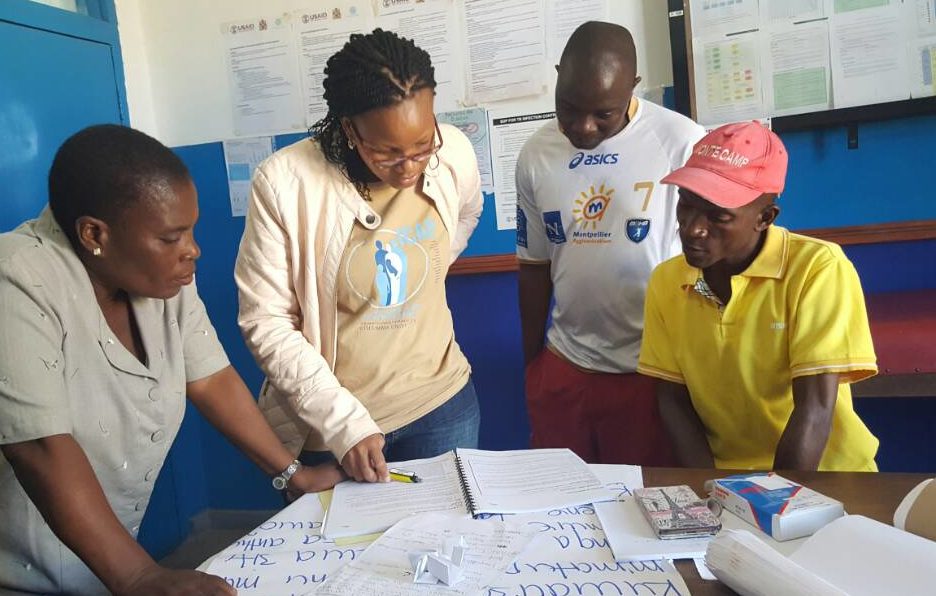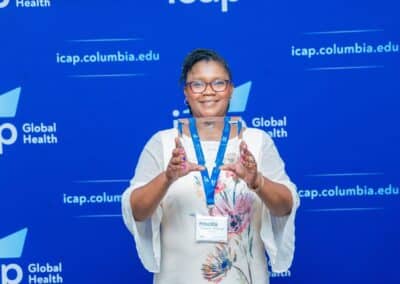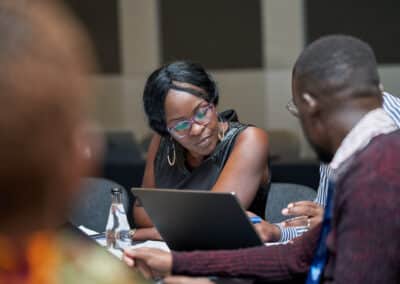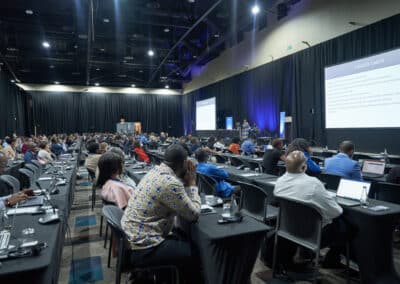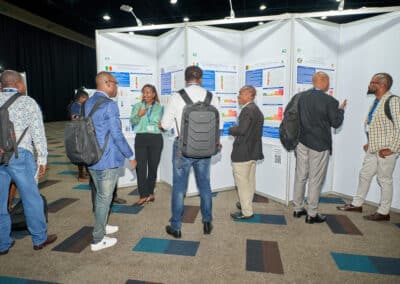Swaziland has taken a proactive approach to scaling up differentiated service delivery (DSD). Since joining the HIV Coverage, Quality, and Impact Network (CQUIN) in 2016, the Ministry of Health has established systems for the planning, implementation, and monitoring of DSD models; participated in the network’s first south-to-south learning visit; and bolstered their monitoring and evaluation (M&E) systems.
By highlighting priorities for DSD scale-up and identifying opportunities to learn from other countries, Swaziland has taken full advantage of CQUIN’s joint learning opportunities. “We’re observing how other countries approach DSD, learning from best practices, and adapting those to our settings,” said Nomthandazo Lukhele, MBChB, Swaziland’s national ART coordinator at the National AIDS Program (SNAP). “CQUIN is helping us anticipate some of the challenges that come from implementing DSD models.”
Lessons from Malawi
In June 2017, Dr. Lukhele and her team from SNAP visited Malawi for CQUIN’s first south-to-south learning visit. They visited teen clubs in Mangochi and Balaka districts, which, according to Dr. Lukhele, changed how she and her SNAP colleagues approach care and treatment for adolescents.
“Malawi transformed their teen clubs into treatment clubs that address specific issues for different age groups,” said Dr. Lukhele. “Our model in Swaziland had been focused on provision of psychosocial support, rather than integrating ART refills and viral load monitoring, which is core to Malawi’s model. Our goal is to adopt that model and make our teen clubs exclusively for HIV-positive patients. We want to bring the medical team in to provide holistic care to the patients and prepare them for adult care.”
In another innovative move, Malawi collapsed all of their clinical visits for teen club members into one Saturday visit, which means teens don’t miss school on a weekday or pay extra for transportation. There is also a forum for caregivers that provides updates on what’s expected to be covered at the clubs, and clearly establishes their roles in helping teens take their ART.
The team at SNAP is in the process of formulating their new HIV care and treatment guidelines, which will feature guidance on how to organize teen clubs based on their observations in Malawi. “The site visit to Malawi wasn’t the only thing that changed Swaziland’s adolescent treatment guidelines,” said Dr. Peter Preko, CQUIN project director. “But the visit had a large impact, and accelerated changes that may otherwise have taken longer to adopt.”
The Impact of CQUIN Workshops
Other changes in the Swaziland national program were informed by the evidence and lessons learned from the CQUIN workshop on patients at high risk for HIV disease progression. The new guidelines will differ from previous versions by prioritizing the DSD approach, featuring an entire chapter on the basic package of care for people living with HIV. For instance, as soon as patients enter care, health care providers will assess their baseline CD4 counts and place them in categories that will later inform the package of care they should receive.
“We’ll have some patients classified as presenting well with mild or moderate immunodeficiency, or those with advanced disease,” Dr. Lukhele explained. “We’ll have a package that clearly defines how you handle those more advanced patients, especially those with a CD4 count less than 100. The entire makeup of the guidelines is on differentiating services based on individual needs, from testing to treatment.”
The guidelines will be launched in April 2018.
Learn more about DSD in Swaziland.
This story is part of a series focused on the evolution of the CQUIN network, and countries’ progress in improving differentiated service delivery. To follow this story and others, sign up for the network’s monthly newsletter.


